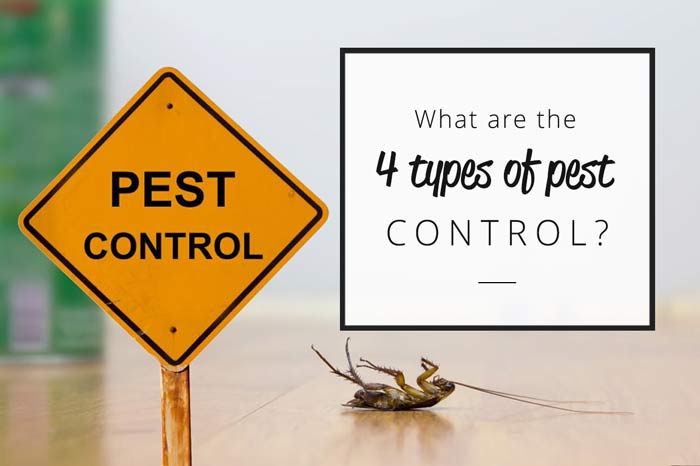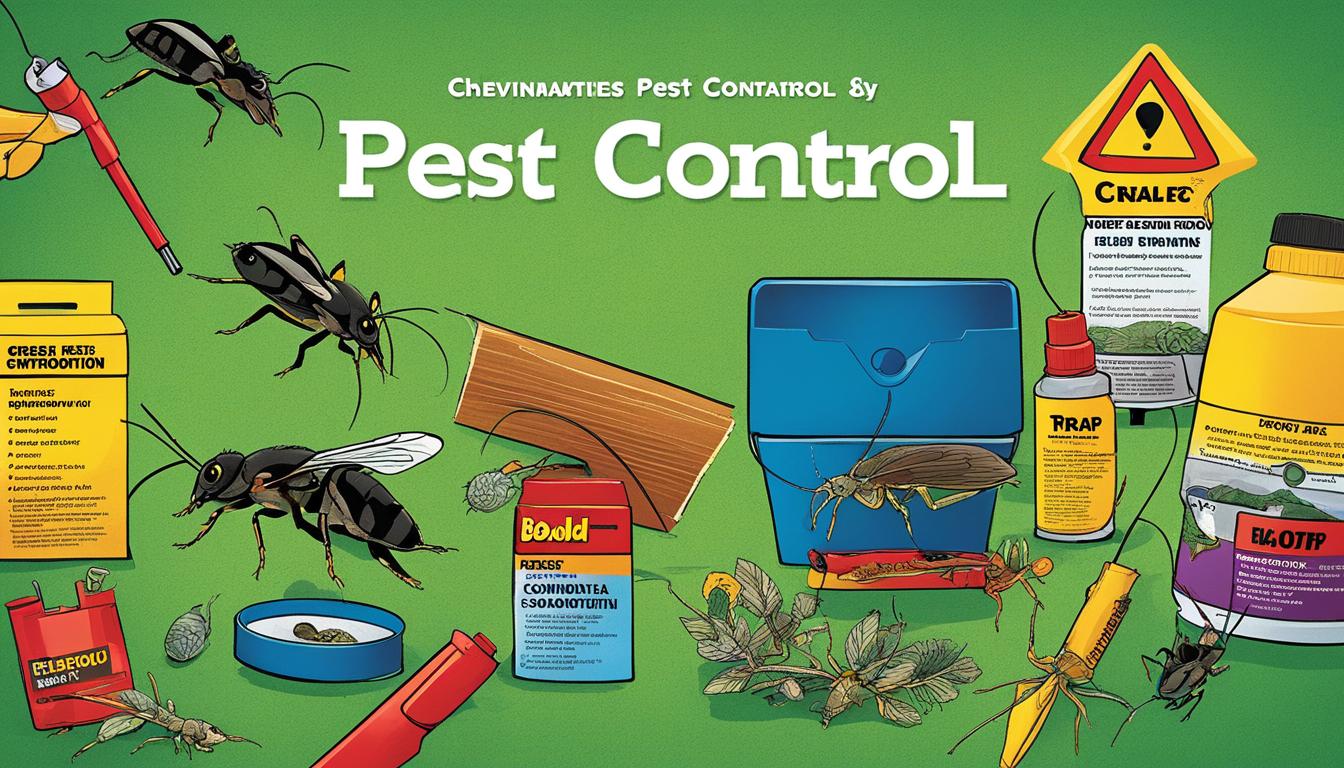The Pest Control Ideas
The Pest Control Ideas
Blog Article
Not known Factual Statements About Pest Control
Table of ContentsThe smart Trick of Pest Control That Nobody is Talking AboutPest Control Can Be Fun For AnyoneThe Greatest Guide To Pest ControlThe Pest Control IdeasThe smart Trick of Pest Control That Nobody is DiscussingThe 9-Minute Rule for Pest Control
Our findings reveal that the preliminary evaluation will certainly cost anywhere from $160-$300 on average. This generally sets you back anywhere in between $400-$1000 for the whole year's insurance coverage, with monthly or bi-monthly visits currently rolled right into the last cost.Depending on the trouble, a job that calls for a single go to usually costs $300 to $550. These are the easiest costs to outline in your parasite control rates listing. Make sure to explain to your customer the process and the moment it will require to evaluate the circumstance. Throughout this first check out, you might find that the task requires several additional gos to, whereupon you can consider it an initial check out.
Bugs that normally calls for recurring gos to include: Cockroaches. Spiders. Termites. Ticks. Rodents. Our findings reveal that a preliminary browse through has to do with $180 and is the initial of a recurring agreement. The preliminary see is where you do the investigating that will help you find out a remedy. During this first go to, you should: Evaluate the problem. Pest Control.
In basic, the frequency of regular visits is: Every month: $40 45. Parasite control is a chemically-intensive organization. Chemicals are the crucial materials that pest control operators use to finish a task.
4 Easy Facts About Pest Control Shown
Necessary products and materials you'll use include: Respirator. Your devices ought to be consisted of as component of your overhead prices. If you have employees, then labor expenses are going to be the most significant expenditures for your service.
Limitations of Chemical Monitoring Have the ability to analyze pest problems, figure out if administration is necessary, and make proper referrals using IPM strategies. Know with various methods of insect monitoring - their benefits and constraints. Comprehend the worth of helpful pests. It is not possibleor also desirableto rid yards of all bugs.
This chapter talks about (IPM), a method that uses expertise about bugs and their, methods, nonchemical methods, and chemicals to take care of pest troubles. Extra information about IPM for certain plants is included in chapters that focus on those plants. Nonchemical parasite control procedures are emphasized in phase 17, "Organic Horticulture." Taking care of birds and animals is covered in chapter 20, "Wildlife." Taking care of in the backyard and yard is covered in phase 6, "Weeds." Bugs in a yard or landscape may include insects and mites, weeds,, animals, and birds.
Excitement About Pest Control
Several people hurry to draw, hoe, or spray every weed they see. Pests and weeds, however, contribute in the. After planting a garden or establishing a grass, the natural procedure of plant succession begins to improve and nonnative plants. A weed growing in a lawn stands for the initial stage in a series of events that, if allowed to continue, could at some point result in a woodland.
What we call "bugs" belong to a natural system at the workplace. A community has no parasites. Just people take into consideration certain varieties bugs when they take place where they are not wanted. We will be much more effective in taking care of unwanted species when we understand that these microorganisms Go Here comply with predictable patterns that we can utilize to our benefit.
Bugs susceptible to a pesticide were rapidly killed, leaving resistant ones to reproduce and multiply. It became clear that chemicals alone would not solve all insect issues. Instead, why not find out more overuse of chemicals created the advancement of immune parasites. Researchers started to establish a brand-new technique to pest control. This new method was called integrated parasite monitoring (IPM).
An IPM strategy permits some level of parasites in the environment. Bugs are a lot less likely to survive a program that makes use of numerous different approaches of minimizing their populaces. Integrated insect management was initial recommended by entomologists since bugs were the first team of bugs to prove challenging to manage with chemicals alone.
The Main Principles Of Pest Control

Management instead than obliteration of insects is the goal. An IPM strategy starts with a cautious assessment of each pest problem.
Clover growing in a grass might be considered as an undesirable weed, but as a bean it is manufacturing nitrogen for the dirt and the flowers are supplying nectar to honey bees and various other. Tolerance for some weeds may become part of an IPM plan. may be consuming the leaves of a plant, however when they are recognized as the larvae of Eastern tiger swallowtail butterflies, their damage might be endured so we can enjoy the lovely butterfly.
Number 81. Brown lacewing larva (Hemerobiidae family). Pest Control. Matt Bertone Prevention is the initial tool in insect monitoring due to the fact that it is one of the most reliable, the very least costly, most eco-friendly option. Choosing a healthy plant that thrives in the desired place with the readily available light, planting it find very carefully, and ensuring that it has adequate water and nutrients prevents tension and reduces insect problems.
Facts About Pest Control Revealed
The second most essential tool in parasite monitoring is very early intervention. Reacting to problems rapidly, before they have time to increase, needs a less dramatic treatment.
Numerous secure, sensible, nonchemical techniques of plant defense and parasite management might minimize or eliminate the need to spray. Various other techniques are most helpful when used with chemicals. To apply monitoring techniques appropriately and to lessen losses, garden enthusiasts ought to know the sorts of insects that strike plants and comprehend pest biology.
Parasite administration techniques come under four groups: social, mechanical, organic, and chemical. Keeping plants healthy and balanced and protecting against plant stress and anxiety aids plants to much better hold up against and repair the damage created by a bug or mite parasite. Some proof indicates that healthy plants stand up to infestation by parasites far better than plants with low vitality.
Performing a dirt test and applying just the recommended amount of fertilizer and lime optimizes the advantage to the plant while reducing troubles associated with extreme use fertilizer. Treatment the soil with a number of inches of mulch secures the plant in a number of means: decreasing dirt water loss to evaporation, lessening weed competition, giving nutrients, and producing an appropriate setting for earthworms and microorganisms that keep the dirt loosened for roots and damage down natural product to release nutrients.
8 Easy Facts About Pest Control Described

If tilling is regarded necessary, take into consideration doing it in the loss when the life cycles of many pests brings them near the surface area. At the surface area, pests end up being revealed to the weather condition as well as birds and various other all-natural opponents.
Report this page